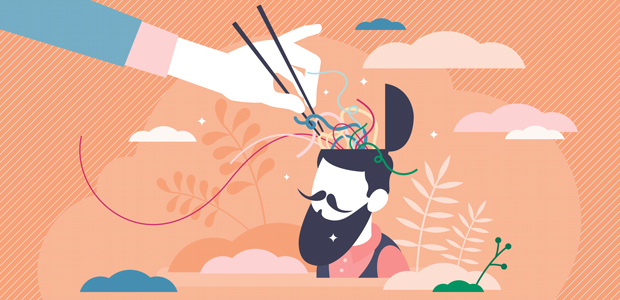
Why embracing uncertainty is the new normal
It goes without saying that the past two years have been, for the most part, unpredictable. In both our professional and personal lives, we’ve all had to pivot and adapt to situations we never thought imaginable. In fact, according to the World Uncertainty Index (Ahir) we’re living in the most uncertain time in human history.
But how does that make us feel? Have you actually stopped to check in with your mental health? Or like many others, are you flying forwards at full pelt just trying to get through the day unscathed?
From global catastrophes to living in a hyper fast modern world, the more uncertain the future seems, the more likely we are to feel panic and trigger a fear response. Our brains have evolved to use a central mechanism that relies on a type of ‘predictive coding’, constantly trying to predict what’s about to happen to keep us safe. For many, this can feel highly overwhelming.
Those horrible feelings of stress and uncertainty can lead us to all sorts of unhealthy comforting 'safety behaviours', such as overindulging in chocolate or wine. Often coupled with a fear of failure we might start avoiding our problems completely. Over time this can become an ingrained habitual response which sadly leads to an even greater fear - the regret of missed opportunity. And this is what underpins uncertainty as being the real root of much anxiety.
Research has shown that those who panic in the face of uncertainty are sentencing themselves to a life of anxiety (Dugas). Research from Finland shows that even moderate stress and anxiety can take nearly three years of your life expectancy (FINRISK).
However there is hope. There are scientifically proven ways you can harness your raw, nervous energy for good. You can even learn to embrace uncertainty and use it to help you achieve your goals.
The term 'embracing uncertainty' refers to any situation where uncertainty appears, you experience a new response to it, and you’re able to control the fear before it leads to limiting anxiety. In fact research (Yale) has shown that we can reduce anxiety and instead use it to actually increase our creativity.
As when your brain is on an alert or 'high arousal'it has the ability to suddenly absorb more information, be more creative and innovative than usual, and be a better leader and problem solver too.
So whilst most of these reactions occur unconsciously, we can learn to become consciously aware of these thought patterns, bias and fear responses and work towards reversing them. So the next time uncertainty rears its inevitable head, we’re able to make better, more informed choices.
In the Uncertainty Experts pilot, which with UCL we turned into a live experiment, this is exactly what we did - we taught participants to reframe failure and recognise their own negativity bias. In fact the audience data showed a statistically significant increase in their tolerance to uncertainty as measured by a range of psychological scales, the most exciting being a 38% rise in self efficacy.
We did this by using cognitive restructuring, a method of rewiring the brain, because of the brain's amazing ability to learn new ways of thinking (neuroplasticity). It does take some time and intention, but as our data shows it’s possible for anyone. The most important step is acknowledging this phenomenon.
Eventually we can learn the skill not just to face uncertainty calmly, but actively too. Anyone can master their mind and increase their tolerance to uncertainty and turn feelings of anxiety to opportunity.
You can decide where you want to be in the future and navigate towards that. After all, the best way to predict the future is to create it. And that first step is embracing your uncertainty.

